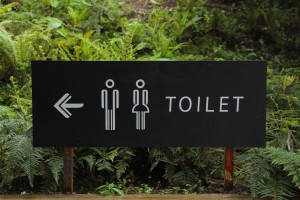 Continence issues are not a popular topic, but if there is no serious discussion, people who suffer in this area often feel alone and helpless. The theme of this year’s Continence Week is “No laughing matter” – focusing on people’s tendency to laugh off continence issues as a joke, or to treat it as an inevitable part of ageing or childbirth. The truth is, continence is a specialist health issue with a range of treatments and management strategies. Let’s look at bladder and bowel control issues, and why we should be discussing them.
Continence issues are not a popular topic, but if there is no serious discussion, people who suffer in this area often feel alone and helpless. The theme of this year’s Continence Week is “No laughing matter” – focusing on people’s tendency to laugh off continence issues as a joke, or to treat it as an inevitable part of ageing or childbirth. The truth is, continence is a specialist health issue with a range of treatments and management strategies. Let’s look at bladder and bowel control issues, and why we should be discussing them.
What is incontinence?
Incontinence is the word used for problems with bladder or bowel control. This could mean that a person accidentally loses urine from their bladder, or has accidental loss from their bowels – including faeces or passing wind. Problems can range from small, infrequent leakages to complete loss of control over the bladder or bowel. Over 4.8 million Australians have some loss of control over their bladder or bowel.
Who is at risk?
Bladder and bowel control problems affect one in four people. It is more common as people age, but these problems are not only limited to older people – many young people also have bladder or bowel control issues. Childbirth can also cause complications that lead to bladder and bowel control problems. Many people with poor bowel control also have poor bladder control.
Isn’t it just something that happens sometimes?
People like to make light-hearted jokes about incontinence, but the truth is that bladder and bowel control problems are a health issue. It’s not a natural part of getting older or giving birth, and it will not get better on its own. Incontinence is an issue that needs medical help to manage, control or fix symptoms.
How can you treat or manage your continence issues?
People with bowel or bladder control issues can feel embarrassed to bring them up, but it is important to discuss them with someone who can help. Bladder and bowel control problems can be treated, managed or cured – you won’t know how much improvement you can make until you ask.
You can work on creating healthy habits to improve your bowel and bladder health by eating healthy food, drinking lots of water, exercising regularly, toning and exercising your pelvic floor, and by reviewing and improving your toileting habits.
Where can you go for help?
Your GP can help you manage and treat your bladder or bowel control issues, and can advise you on what steps you can take to improve your condition.
If you are uncomfortable talking about your bladder or bowel control issues in person, you can phone 1800 33 00 66 for confidential advice, or you can go to www.continence.org.au to find information, connect and share your experience.
Don’t live with incontinence issues – click here for an appointment today.
